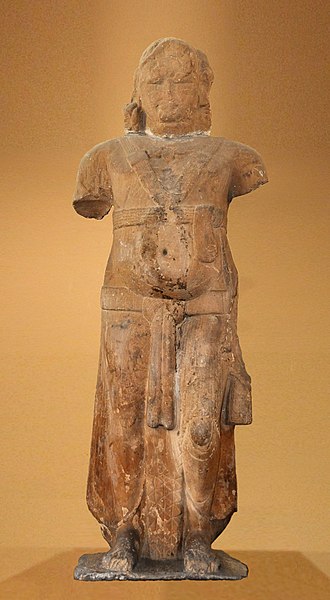
Yaksha
Gematria Values
A Yaksha (Sanskrit: यक्ष) is a class of nature spirits in Hindu, Buddhist, and Jain mythology. The term is derived from the Sanskrit word yakṣa, which means "to worship" or "to be seen." In Hebrew, this term can be translated as יאקשה (Yaqsha). In Tibetan, it is known as དྲེ (Dre), and in Chinese, it is referred to as 夜叉 (Yèchā). Yakshas are often depicted as benevolent or malevolent beings associated with forests, mountains, and other natural phenomena. They are typically portrayed as dwarfish or humanoid in appearance, and they are known for their supernatural powers and their role as protectors of treasures. In Hindu mythology, the Yakshas are often associated with the god Kubera, the lord of wealth, and they are believed to inhabit the lower realms of the cosmos. In Buddhist mythology, Yakshas are often depicted as protectors of the Buddha and his teachings, and they are sometimes worshipped as deities in their own right. In Jainism, Yakshas are considered to be minor deities who assist the Tirthankaras, the enlightened beings who have attained liberation from the cycle of rebirth.
Wikipedia Information
